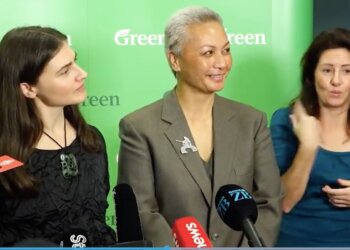Another article indicating a positive shift in the NZ property market, suggesting we’ve hit the bottom of this house price cycle.
This change is a breath of fresh air for those investors and home buyers sitting on the sidelines waiting for the opportune time to enter the market.
John Kenel
Assured Property
See full article from NZ Adviser below:
By Priscilla Dickinson
Residential property values fell further in the three months to May, but the percentage decline is slightly less than three months’ ago, indicating property prices could be close to finding their floor.
The Quotable Value (QV) House Price Index for the three months to the end of May showed that national home values fell by 3.4% – down from the 3.5% decline in April and lower than the 3.9% quarterly decline in March.
The national average home value now sits at $888,930 – 13.7% below the same time last year and 20.2% higher than the level pre-COVID-19.
Quotable Value (QV) operations manager James Wilson (pictured above) said that the bottom of the market was still “too soon to call”. It was still very early days and sales volumes remained low across the country, he said.
“We would still need a few more months of continued softening to claim conclusively that we’re at the bottom of the market,” Wilson said.
When the market does reach the bottom, Wilson said that he does not expect values to immediately start rising across the board. The turning point is likely be a “bumpy landing”, where some centres reach the bottom of their descent before others, he said.
“Certain locations and property types may begin to experience some growth sooner rather than later, whereas others may remain flat or continue to soften for a period,” Wilson said.
In which areas did value declines slow?
According to QV figures, the rate of home value decline slowed in 11 of the country’s 16 largest urban areas, including Auckland (down 2.3%), Hamilton (down 2%), Wellington (down 2.6%) and Christchurch (down 2.5%).
Areas with values below $1 million tipped to rise first
Areas appealing to first home buyers and investors are likely to be the first to experience a rise in values, Wilson said.
He noted that areas with strong first home buyer activity over the last 12-18 months translated to strength in property values.
“In fact, most areas of the country that have experienced positive value growth or held relatively steady over the last quarter have had average values of well below $1 million,” Wilson said
“In other words, first home buyer territory.”
Investors sitting on the fence
Wilson said that investors continued to adopt a “wait and see approach” in many markets.
Indications that the Official Cash Rate has peaked could entice investors back he said, noting that valuers and real estate agents reported a small lift in interest.
“Time will tell whether we do see a growing number of investors represented in sales volumes over the next months competing for entry level stock,” Wilson said.
Uncertainty in market remains
Wilson said that there remained an elevated level of uncertainty across the market overall, particularly among the ‘mum and dad’ buyer group.
“While these buyers remain inactive, value levels in areas that used to be strong are likely to remain pretty weak,” Wilson said.
Net migration is tipped to increase with April figures out on June 13. Wilson said that this may add some heat to the housing market over time, but that the impact was likely to be evident in the rental market first.
Noting that the NZ general election is set for October, Wilson said that history showed an election doesn’t typically have a significant impact on the housing market, although some buyer types would likely remain “on the sidelines” until the official result, he said.
Home values across the country
The average rate of home value reduction in Auckland has slowed for the third month in a row, QV said. The average home value in the region was $1.25 million in May, the average home value dropping by 0.3%.
Local QV valuer Hugh Robson said that many property owners in Auckland who had purchased over the past 2-4 years were facing the prospect of re-fixing their mortgage at a considerably higher interest rate, coupled with a property that had “decreased in value considerably”.
The average rate of home value reduction in Wellington was 2.6% over the May quarter, QV noting that this was the first time since the start of the downturn that values in the Wellington region tracked below the national average of 3.4%.
Following a strong May, home values in Canterbury were down by an average of 2.5%.
Local Canterbury QV valuer Olivia Brownie said that the slight adjustment of the First Home Grant house price caps had come into effect, noting that properties in the $500,000 to $800,000 price range had experienced higher enquiries.
Values were variable across Northland, Whangarei showing a decrease of 3.5%. Home values in Tauranga reduced by 4% over the three months to May, while the average home value in Waikato increased by 0.4%. Values in Rotorua held steady, the average home value dropping by 0.2%, and values in the Taranaki region dropped by an average of 2.2%. The average home value in Napier and Hastings decreased by 3.4% and 1% respectively, while home values in Nelson decreased by 2.4%.
In Palmerston North, values decreased by 1.3%, while in the West Coast, values increased by an average of 4.3% in Buller, while Grey and Westland showed decreases of 0.1% and 3.5%. Dunedin’s average home value decreased by 2.8% over the three months to May, the average home value in Queenstown dropped by 1.1% and the average home value in Invercargill decreased by 0.2%.
Source: NZ Adviser







